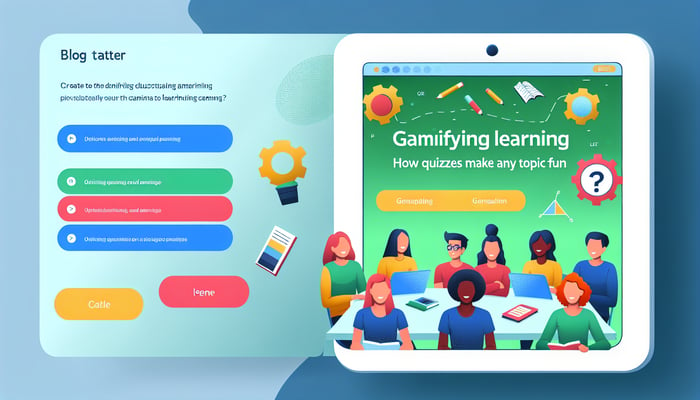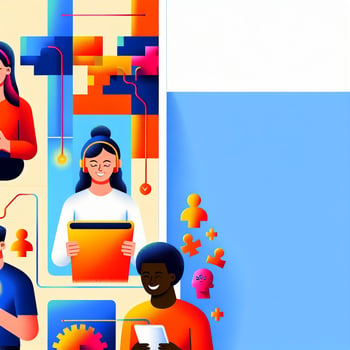
Gamifying Learning: How Quizzes Make Any Topic Fun
Discover how gamifying learning through quizzes can make any topic fun and engaging. Explore the benefits of quizzes in education, their impact on retention, and practical tips for implementation.

Discover how gamifying learning through quizzes can make any topic fun and engaging. Explore the benefits of quizzes in education, their impact on retention, and practical tips for implementation.
In the ever-evolving landscape of education, the integration of gamification has emerged as a powerful tool for enhancing learning experiences. One of the most effective gamification strategies is the use of quizzes. Not only do quizzes reinforce knowledge retention, but they also inject an element of fun into the learning process, making even the most mundane topics engaging. In this blog post, we will explore how quizzes can gamify learning and transform the way we approach education.
Gamification refers to the application of game-design elements in non-game contexts to motivate and enhance user engagement. In the realm of education, this means incorporating game-like features into learning activities to make them more enjoyable and interactive. Here are some key benefits of gamifying learning:
Quizzes can turn any learning topic into an engaging experience. Here’s how they achieve this:
Quizzes can take many forms, from multiple-choice questions to true/false statements, fill-in-the-blank exercises, and even interactive games. This variety keeps learners intrigued and caters to different learning styles.
Incorporating storytelling into quizzes can make them more relatable and enjoyable. For example, quizzes can be framed around a narrative, where learners must answer questions to progress through a story, making the experience immersive.
Offering rewards for quiz performance, such as badges, points, or certificates, can motivate learners to participate actively. Recognizing achievements not only boosts confidence but also encourages continued engagement.
Here are some practical tips for educators and learners looking to implement quizzes effectively:
Incorporating quizzes into learning not only makes education more enjoyable but also improves retention and understanding of the material. By gamifying learning, we can create a more dynamic and effective educational experience. Whether you’re an educator looking to spice up your lessons or a learner aiming to make study time more enjoyable, quizzes are a fantastic tool to achieve your goals. So why not start gamifying your learning today?

Discover the surprising benefits of playing online quizzes! From enhancing memory retention to reducing stress, learn how these engaging activities can improve your cognitive skills and promote social

Discover the numerous benefits of online learning, from flexibility to diverse resources. Learn how educational quizzes enhance retention and engagement, making learning more effective and enjoyable.

Quiz battles are rapidly gaining popularity as competitive quizzing becomes a thrilling sport. This blog explores the reasons behind this trend, the benefits of participation, and how you can get in.